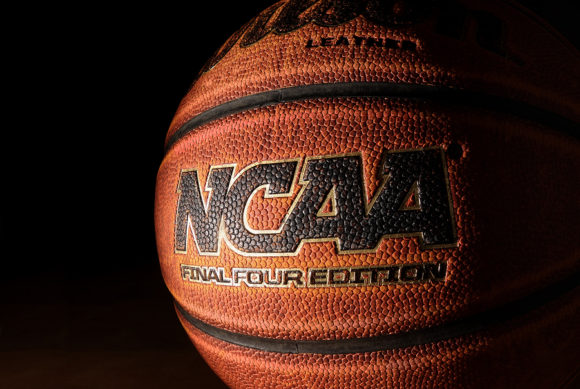If the NCAA’s Final Four basketball games were to be cancelled or postponed for any reason, that would be really, really bad news, not only for the collegiate sports association and fans but also for the panel of insurers that are providing coverage for the event, as well.
Not that anyone expects either to happen, said Southern California-based Peter Williams, global product lead for Live Entertainment at Allianz, one of the insurers for the Final Four. Still, as they say, it pays to be prepared.
The Final Four is the culmination of what is now known as “March Madness,” the single-elimination tournament that decides the best Division 1 men’s (or women’s) basketball team of the year. Sixty-eight teams compete in the annual tournament, the first of which in the men’s division was held in 1939. With 11 wins, UCLA has come out on top in the men’s championship tournament more times than any other team, according to the National Collegiate Athletic Association, better known as the NCAA.
While “March Madness” lasts for weeks with teams playing at a variety of venues all over the country, the men’s Final Four takes place this year April 6 through 8 at the U.S. Bank Stadium in Minneapolis, Minnesota.
For the insurance carriers involved, “the Final Four games are the focus … because that’s when the really big TV revenues kick in and so they become the most important games from an insurance perspective,” Williams said. Spread across a number of insurers, the insurance policy for the event, is “very substantial,” he added.
The numerous games leading up to the Final Four are being held at various locations, colleges and universities, and those venues have their own risk management and insurance programs. For the Final Four, the NCAA is the principal insured along with certain other interests, Williams said. A substantial portion of the insured value is the risk of cancellation or postponement based on the revenue stream raised by televising the games, along with the cost of putting on the event.
The physical protection aspect of a large tournament is an issue and “we are always concerned with the audience — ingress, egress, safety of the audience. But for us, the big-ticket item is really the cancellation or postponement of one of the games,” Williams said.
Theoretically, if something were to cause the games to be interrupted or inaccessible, the games would be postponed but not cancelled. The NCAA has “a backup venue that the games can be moved to at short notice should they have to be, which is slightly unusual in terms of large sporting events. … It’s not really possible to move the Super Bowl or it’s not possible to move the Olympics. But for these games, they do have a backup available and plans just in case,” he said.
So, insurers look at the possible reasons the games might be postponed. “We are conscious of the weather, should there be some kind of national emergency around the blizzard or the weather, which would prevent the teams and the fans getting to the auditorium, or even the television crews for that matter,” Williams said.
The modern-day risks of acts of terrorism or a lone gunman scenario have to be considered, along with the possibility of hackers causing disruption or threats to local power grids. “There is security around power stations, power grids, etc. But it is college based. [You could] get some young fans who might try and hack in just for the fun of it and disrupt proceedings.”
GS4 and Whelen Event Security are private security providers for the U.S. Bank Stadium, but the federal Department of Homeland Security, the FBI and local police control security surrounding the event. The games “are treated with the highest level of security that you can imagine,” Williams said.
However, the possibility of a mass casualty occurrence at large-scale events — it could be a fire that causes a facility to be evacuated — is not overlooked by the insurance company. “Whenever there is a large crowd, whether we’re doing a music festival, a sporting event, a rock concert, we always look at the security around what we call mass casualty events,” Williams said.
The venue for the men’s Final Four is accustomed to hosting large events. For instance, the 2018 Super Bowl was held at the U.S. Bank Stadium. “The venue itself, is extremely experienced, it’s well built, it’s got every life safety measure you can imagine built into it. They’re used to the crowds, they’re used to potential problems, the sale of alcohol, etc., is strictly controlled,” he said.
Note: The college women’s Division 1 Final Four will be played in Tampa Bay, Florida, April 5 – 7 in the Amalie Arena. The NCAA women’s championship tournament was first held in 1982. Like UCLA in the men’s Division 1 championships, the University of Connecticut women’s teams have won 11 championship titles, the most of any women’s team.
Was this article valuable?
Here are more articles you may enjoy.



 Trump’s EPA Rollbacks Will Reverberate for ‘Decades’
Trump’s EPA Rollbacks Will Reverberate for ‘Decades’  ‘Structural Shift’ Occurring in California Surplus Lines
‘Structural Shift’ Occurring in California Surplus Lines  The $10 Trillion Fight: Modeling a US-China War Over Taiwan
The $10 Trillion Fight: Modeling a US-China War Over Taiwan  Florida Engineers: Winds Under 110 mph Simply Do Not Damage Concrete Tiles
Florida Engineers: Winds Under 110 mph Simply Do Not Damage Concrete Tiles 

